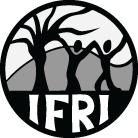Research Design
The IFRI program examines how governance arrangements shape forest outcomes. Scholars and policy makers affiliated with IFRI are interested in understanding the role of formal and informal institutions in enhancing livelihoods and adaptive capacity of peoples, conserving biodiversity, and promoting greater sustainability in carbon sequestration. Our goal is to carry out rigorous research that can help policy makers and forest users design and implement improved evidence-based forest policies. IFRI utilizes the institutional analysis and development framework which promotes interdisciplinary research and analysis.
Some of the goals of our work are to:
- Assess the nature of tradeoffs among forest conservation, livelihood development, and carbon sequestration
- The role of institutions and policies in promoting better forest outcomes
IFRI provides a way for people to collect, store, and analyze data over time about forests and the communities that use forests. It can be used to:
- Conduct baseline studies
- Measure change over time in forest conditions and in local governance structures; and
- Share information with pertinent and interested colleagues.
How does IFRI differ from other research programs and databases?
- IFRI is composed of a network of Collaborating Research Centers (CRCs) that utilize a common research methodology and database that includes a diverse array of variables taken from the environmental and social sciences.
- The design of the IFRI research instruments is based on the Institutional Analysis and Development (IAD) framework and previous theoretical and empirical studies. The IAD framework, developed by colleagues at the Workshop in Political Theory and Policy Analysis at Indiana University, provides a unique way for researchers to transcend disciplinary boundaries.
- IFRI focuses and collects data on institutional, social, and ecological variables which can be stored in a single IFRI database, and analyzed to understand the inter-relationships among social and ecological processes and outcomes.
News
IFRI Special Issue Collaboration
(17/09/2016)
FLARE Announces Keynote Speakers

